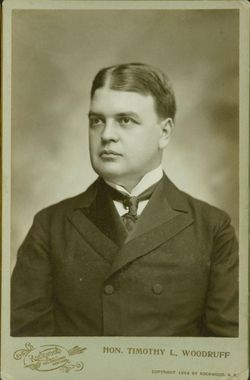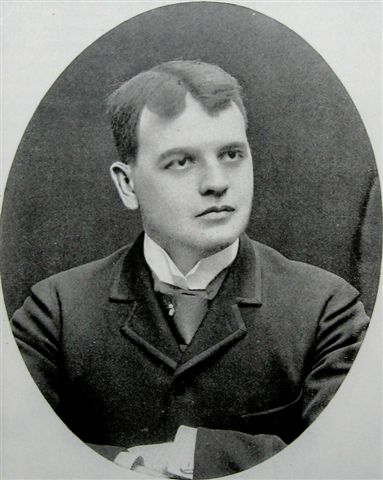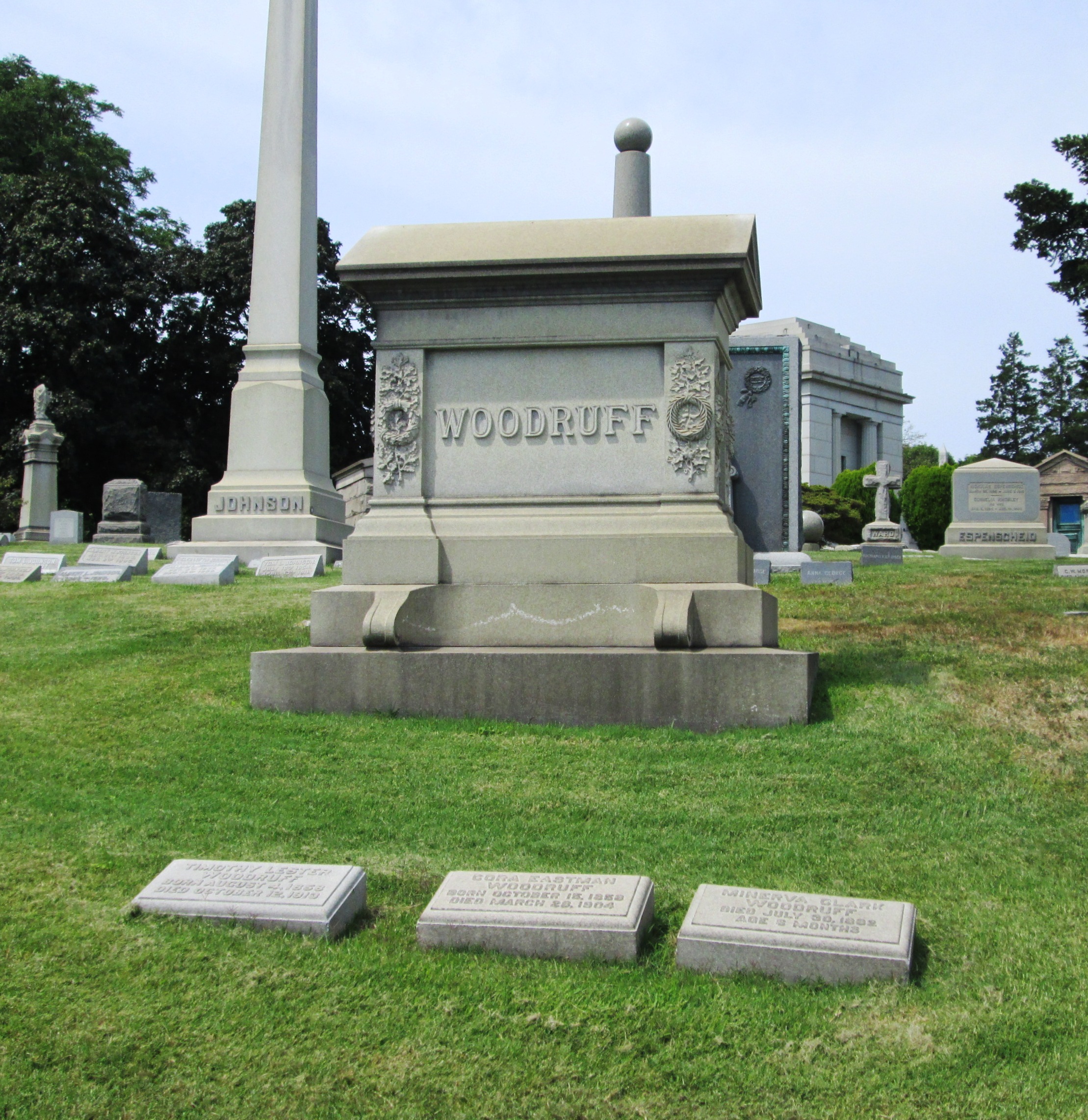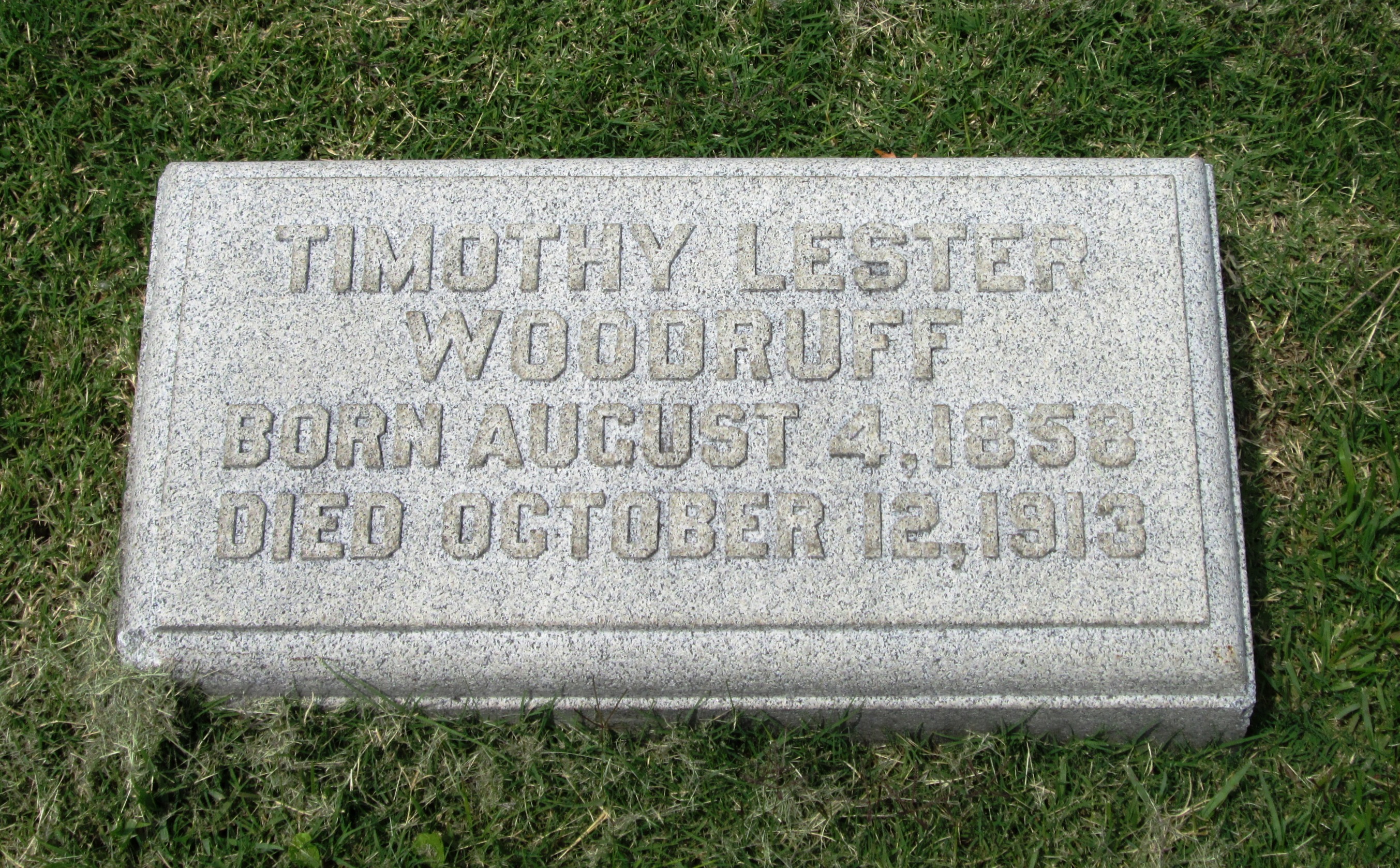Entering politics in 1885, he a was appointed park commissioner of Brooklyn in 1895, in which position he gained great popularity by throwing open the parks at night for the poor. In 1907 he was elected lieutenant-governor of New York State and served three terms.
During his political career, Woodruff was very enthusiastic about agricultural affairs. He aggressively promoted the protection of the New York wilderness, including protection from deforestation and devastating damming. Obviously a man who appreciated nature, he also frequently visited his camp in the Adirondacks named "Kamp Kill Kare" where he often brought friends, family, and fellow politicians. He named a lake at the camp Lake Kora, after his wife Cora.
Although perhaps most well-known for his political endeavors, Woodruff was also very active in several different businesses. He was at one point the treasurer of the Worchester Salt Company, president of the Maltine Company, president of the Smith Premier Typewriter Company, president of the Pneumelectric Machine Company, a director of the Merchants' Exchange National Bank, and vice president and member of the board of directors of the Garden City Estates.
Outside of these political and business careers, Woodruff had two wives, a daughter, and a son. His first wife, Cora, became gravely ill for quite some time before dying in 1904. She was buried beside their first child, a daughter named Minerva who died as an infant. A year later, Woodruff married Isabel Morrison. Woodruff's son John also attended Yale, but correspondence between father and son revealed that John was at times irresponsible and a disappointment to his successful father. John later married and participated in some of the same businesses that his father was active in.
Woodruff was also the first president of the Adelphi College Board of Trustees, serving from 1896-1908. During this time he was responsible for petitioning the New York State Board of Regents in 1896 to allow the college to be attended by both male and female students.
After stepping down as president of the Board of Trustees, he remained active in the college and continued corresponding with the college's founder, Charles H. Levermore. They discussed topics ranging from school events to providing the school with typewriters from one of the several typewriter companies Woodruff was involved with.
In 1913, after an incredibly active political and business life in New York, Woodruff died suddenly after suffering a stroke while delivering a speech at the age of fifty five.
Entering politics in 1885, he a was appointed park commissioner of Brooklyn in 1895, in which position he gained great popularity by throwing open the parks at night for the poor. In 1907 he was elected lieutenant-governor of New York State and served three terms.
During his political career, Woodruff was very enthusiastic about agricultural affairs. He aggressively promoted the protection of the New York wilderness, including protection from deforestation and devastating damming. Obviously a man who appreciated nature, he also frequently visited his camp in the Adirondacks named "Kamp Kill Kare" where he often brought friends, family, and fellow politicians. He named a lake at the camp Lake Kora, after his wife Cora.
Although perhaps most well-known for his political endeavors, Woodruff was also very active in several different businesses. He was at one point the treasurer of the Worchester Salt Company, president of the Maltine Company, president of the Smith Premier Typewriter Company, president of the Pneumelectric Machine Company, a director of the Merchants' Exchange National Bank, and vice president and member of the board of directors of the Garden City Estates.
Outside of these political and business careers, Woodruff had two wives, a daughter, and a son. His first wife, Cora, became gravely ill for quite some time before dying in 1904. She was buried beside their first child, a daughter named Minerva who died as an infant. A year later, Woodruff married Isabel Morrison. Woodruff's son John also attended Yale, but correspondence between father and son revealed that John was at times irresponsible and a disappointment to his successful father. John later married and participated in some of the same businesses that his father was active in.
Woodruff was also the first president of the Adelphi College Board of Trustees, serving from 1896-1908. During this time he was responsible for petitioning the New York State Board of Regents in 1896 to allow the college to be attended by both male and female students.
After stepping down as president of the Board of Trustees, he remained active in the college and continued corresponding with the college's founder, Charles H. Levermore. They discussed topics ranging from school events to providing the school with typewriters from one of the several typewriter companies Woodruff was involved with.
In 1913, after an incredibly active political and business life in New York, Woodruff died suddenly after suffering a stroke while delivering a speech at the age of fifty five.
Family Members
Sponsored by Ancestry
Advertisement
Advertisement













